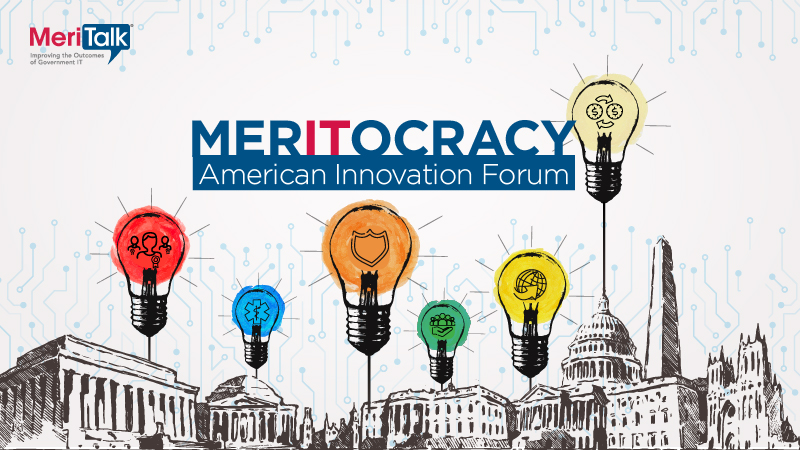
Can technology innovation – coupled with the boldest kind of leadership – work together to start fixing the most intractable problems facing America? On July 21 – we’re going to find out. The countdown to MerITocracy 2022: American Innovation Forum is on.

In the lead-up to the in-person forum in Washington, D.C., we are table-setting a host of big issues that will get serious attention at MerITocracy 2022. And lining up some big guns in Congress – Reps. Bill Foster, D-Ill, and Tom Emmer, R-Minn. – along with Chamber of Digital Commerce CEO Perianne Boring to point the way forward.
In today’s edition of Countdown to MerITocracy, we’re taking a look at both cryptocurrency – and more importantly the blockchain technologies that enable that booming asset class – and how those are heading for a serious examination by government policy-makers. Here’s an issue-tracker to help separate hype from reality:
First, cryptocurrency as an asset class is a spectacular mess:
- Short of government action to curtail its use – a highly impractical step – cryptocurrency and the global market for the non-governmental currency will flourish or wither based on supply, demand, and the consensus of investors in the asset class.
- If a measure of stability is necessary to establish any currency as a global-leading means of exchange, crypto’s extreme volatility leaves it on the sidelines for the foreseeable future. Example: Worldwide crypto market cap rises to $2.7 trillion in November 2021, and falls to $1.2 trillion in May.
- Regulatory prospects – Very high, as both the White House and Congress are taking steps already to examine increased regulation of a wider class of “digital assets” that include cryptocurrencies.
- Most prominently, President Biden issued an executive order earlier this year to address risks and benefits of those assets over the next year. Areas of scrutiny include: consumer and investor protection; financial stability; illicit finance; U.S. leadership in the global financial system and economic competitiveness; financial inclusion; and responsible innovation. The White House Office of Science Technology and Policy is also looking into the environmental impact of cryptocurrency, and its energy-intensive “mining” processes.
- In Congress, a bill introduced in the House in April would increase oversight of the market, led by new authorities for the Commodity Futures Trading Commission. At the same time, legislation is brewing in the Senate for bipartisan legislation to create a broad-based regulatory framework for cryptocurrency. At the same time, IRS officials say they want more funding and tax code changes to more closely track cryptocurrency holdings.
- Bank on regulation: The government is very likely to impose some kinds of regulation on the cryptocurrency market so far as it is able to do so in a worldwide market. Whether those regulations have any material impact on growth remains to be seen.
Second, the underlying blockchain technology is the real gold:
- Blockchain – defined as a distributed database shared among nodes of a computer network – blockchain tech stores information in a digital format and plays a crucial role in cryptocurrency systems in order to maintain secure and decentralized records of transactions. According to proponents, blockchain represents an innovation because it guarantees the fidelity and security of a record of data and generates “trust” without the need for a trusted third party – such as a central bank – to fill that role.
- Forget crypto, how about cyber and supply chain security – Beyond its probably most well-known role as a cryptocurrency enabler, blockchain technology has been offered up by technologists for years for a host of other purposes that can deliver both commercial and societal benefit. How supply chain monitoring, digital identification, data sharing, voting, copyright protection, data backup, medical record-keeping, and weapons tracking – just to name a few. Those sound like applications that can solve the big problems MerITocracy is looking at.
Finally, why it matters to solving bigger problems:
- For all the right reasons, better technology to protect supply chains, improve cybersecurity through more security digital identification, better protect data from ransomware attacks, and improve medical record keeping and sharing are the kinds of applications that can solve real problems faced by real people – and not just high-flying crypto traders.
- On the flipside, use of blockchain and similar technologies to help create “digital dollars” that can then be precisely tracked to their owners and what they buy and sell also poses a range of outcomes – from privacy-crimping government surveillance and oversight on the downside, to robbing criminal enterprises of financial anonymity on the upside.
Bottom lines:
- Crypto and blockchain are truly at the crossroads of wider use and acceptance;
- Some types of additional government regulation are inevitable;
- If regulators focus more on the currency aspect, then crypto, its volatility, and its underlying blockchain tech are bound to get a bad name and that’s not promising for blockchain;
- If government imposes some kind of “reasonable” disclosure and taxation on the currency aspects, and instead fosters further opportunities for the underlying blockchain technologies, then broader societal benefit may be in the offing.
Finally, if you want to know even more about the state of crypto and blockchain and future regulation, consider checking out the DC Blockchain Summit on May 24. The event is organized by the Digital Chamber of Commerce and promises to bring together “the world’s leading pioneers across the blockchain ecosystem, policymakers, academics and others for critical discussions on the issues that will define the future of our industry for decades to come.”
We invite you to join the in-person MerITocracy American Innovation Forum on July 21 at the Marriott Marquis in Washington, D.C., from 8:00 a.m. to 6:00 p.m., where we will host bipartisan leaders from Congress, the Biden administration, and America’s tech industry to examine the most pressing problems facing citizens in our democracy, and map out creative solutions from the nexus of policy and technology.
